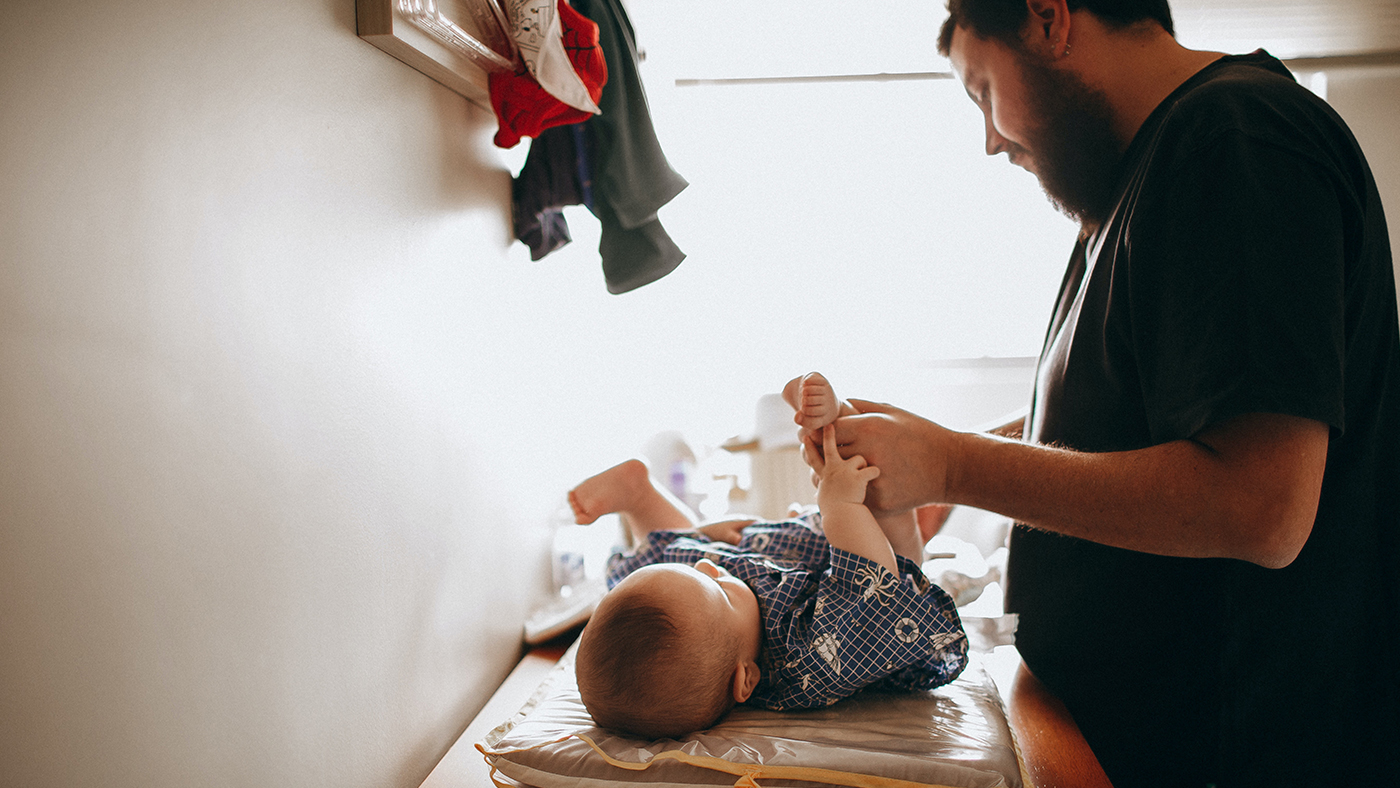See bathtime and nappy changing as your time to engage

Your baby might not have been sure about bathtime and nappy changing at first – they would be unfamiliar and involve lots of new sensations. As they become used to these routine activities, your baby will begin to engage with you during these times as they provide a chance for you to focus on each other and enjoy reciprocal interactions.
Getting happy with a nappy
Nappy changing is a time when your baby will often have your undivided attention; now that they know what to expect when you change them, they'll enjoy using the time for interaction.
In a research project, parents were asked about what the first thing was that made their baby laugh in the morning; the most common answer after seeing their mother or playing games was having their nappy changed.[1] In research about babies laughing it is suggested that they are most likely to laugh in social situations,[1] so perhaps for your baby nappy changing is a valuable time for happy interaction.
Where you can, take time over these routines
While you might sometimes need to do a quick nappy change because you need to get ready to go out, it's worth taking time with these routine activities to make them enjoyable for you and your baby.
Your baby will begin to understand and remember repeated experiences and associate these with particular emotions. If nappy changing is a time when you smile, speak to them and perhaps play with them or stroke them gently, they will learn that this is a pleasant, one-to-one experience.[2]
Repeated experiences help your baby learn
These positive interactions support the development of your baby’s brain, because they will learn most from experiences that are repeated. So although a nappy change, feed or bath might seem routine for you, these experiences lead to lots of learning for your baby as they happen frequently. They will learn about ways of interacting and associate these routines with the feelings they have during them, which will be connected to their awareness of how you feel during these routine activities.[2] Calm, happy nappy changes might help your baby to feel relaxed and calm in the future when toilet training begins!
Times for picking up emotions and words
As they develop, these routines will help them to understand their emotions and the emotions of other people, plus, if you talk to them while you carry out these simple actions, they will learn words from you and the people who care for them.
References:
[1] Addyman, C (2020) The laughing baby: The extraordinary science behind what makes babies happy. London: Unbound.
[2] Gerhardt, S. (2004) Why love matters. How affection shapes a baby’s brain. Hove: Bruner-Routledge.